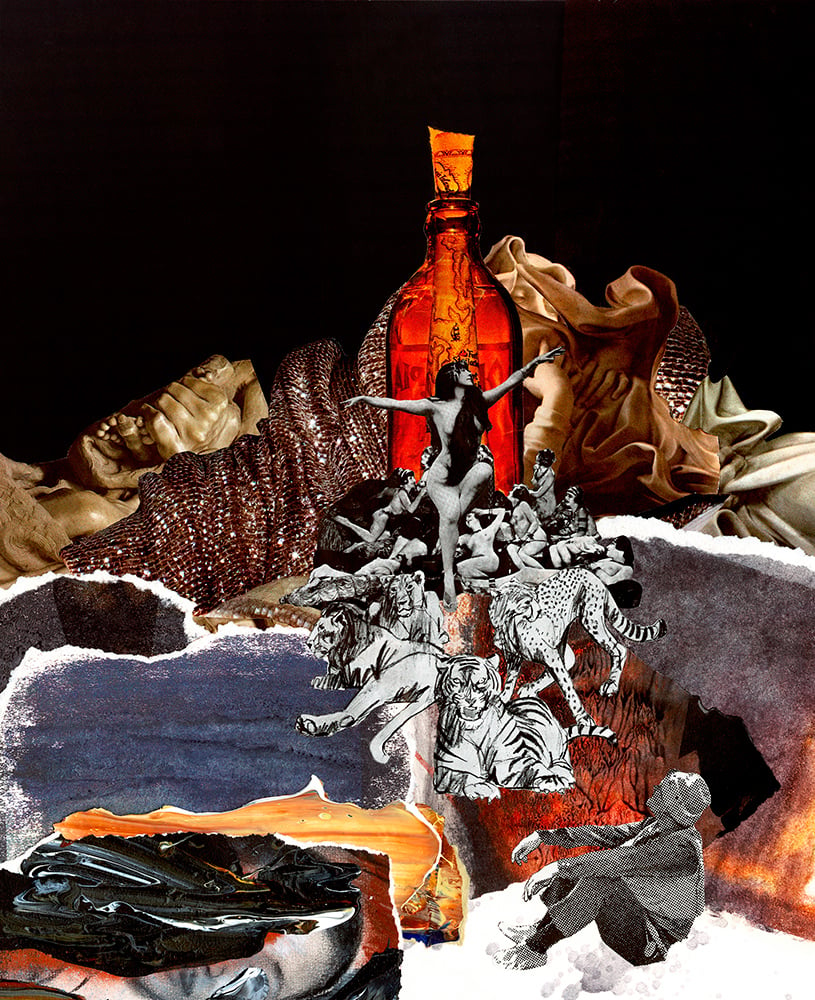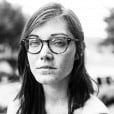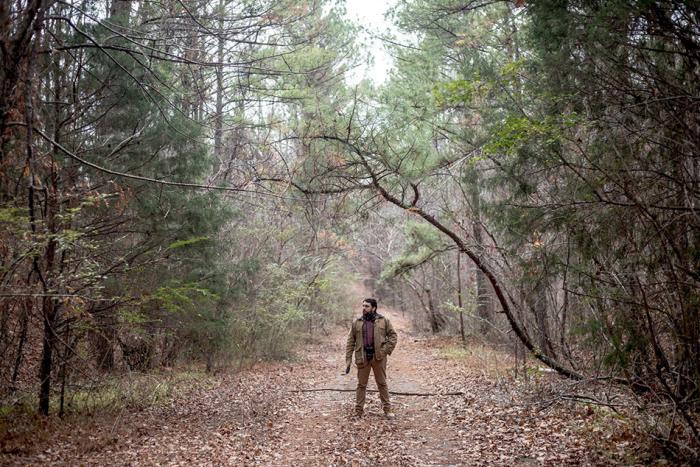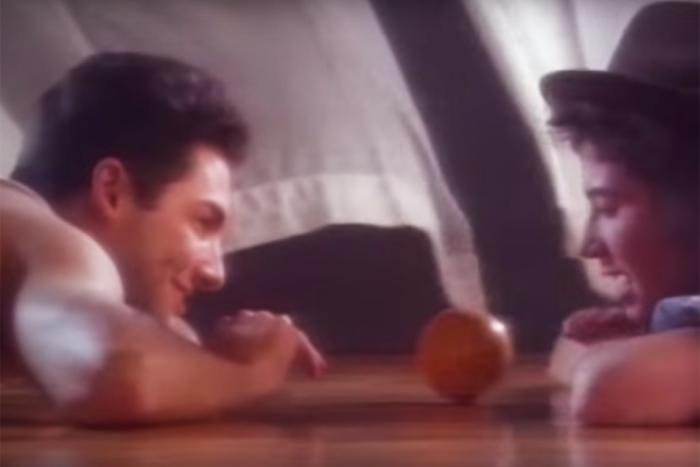
Mouthful is a monthly column about the author’s relationship with food, ten years into recovery from anorexia and bulimia.
I’ve been thinking about my failures, especially the ways I’ve failed other people. A year before my novel Binary Star came out, I began interviewing people for a nonfiction book about eating disorders. The protagonist of Binary Star is an anorexic college student and I had drawn heavily from my own history with anorexia to write her. I felt in my writing I was finally able to translate into language what I had been carrying around as a shapeless trauma. But once I was finished, once I’d satisfied myself with a psychological portrayal of the disease, I began to crave a more scholarly understanding.
In retrospect, what I truly wanted was some authority outside of myself to validate what had happened to me. Having relived the trauma of anorexia in my writing, I wanted to verifiably attribute it to some cause other than an inborn deficiency—point to a reason that was larger than me. Give my pain context and meaning.
I framed my project as a search for the biological and cultural roots of disordered eating because it seemed to lend the endeavor credibility. I began to aggregate research online and in books. Then I sought out interviewees.
Over the next several months, I interviewed probably fifteen people who were struggling or had struggled with food. Some spoke on condition of anonymity, others wanted to take credit for their stories. Unsure at first whether the project would in fact be a book as I had planned—perhaps it would be a gallery show?—and feeling that, because of the subject matter, I should pay close attention to body language, I recorded the interviews with a Canon 7-D camera mounted on a tripod. I shot video. Most of the people I interviewed were friends, or friends of friends, but one of them wasn’t: M. She responded to a call I placed on Craigslist.
*
M. lived alone in a one-bedroom apartment near Hunter College. She was twenty-two and dreamt of studying marriage and family counseling, but was waiting until she was sufficiently along in her recovery from self-harm and binge eating disorder to apply for grad school. She began sneaking food when she was ten or eleven years old as a way to cope with her parents’ arguing. By then, she had already been told she had high cholesterol like her father and needed to change her diet. But her reliance on food escalated when her father killed himself that year. When I asked her why she turned to food during that time as opposed to some other outlet, she told me, “It’s just the one thing that I had.”
For a few reasons, I was uncomfortable talking to M. I had scheduled the interview in the evening and then arrived late, which I feared made me look unprofessional. On top of that, my camera quickly ran out of memory. I made several attempts to fix it, and then called my husband, who told me that I had erased the previous interview files incorrectly after exporting them, and that they were still taking up space on my memory card. There was nothing I could do, so I recorded the remainder of the interview with my audio recorder.
But also, I was uncomfortable because M. was the first person I had interviewed about overeating; all of the others before her had been anorexic, bulimic, or crash dieters. I felt that those interviews had gone well, even if I hadn’t decided yet how I was going to use them. I’d instinctively known how to steer the conversations. I recognized the stories I was hearing in my own.
On the surface, anorexia is the opposite of binge eating. M. told me about the difficulty she’d had trying to replace ice cream with smoothies. That going to the supermarket was always a disaster, whether or not she went in with a plan to buy more nutritious food or a plan to buy junk. She told me that, in middle school, she’d hide in her locker the lunches her mom had packed her and eat junk food instead—and that, after a period of doing this, all of her school guidance counselors, along with her mother, had had to force her to clean out her locker because it was infested with bugs.
At a glance, M.’s behavior was everything I would never do as an anorexic person. Alongside pity, a feeling of revulsion came from the part of my brain that reacts emotionally to food, that dissociates from painful feelings via hunger and is destabilized when the hunger is satiated and emotions come flooding back. It’s cunning and automatic; I’m not always aware that it’s been activated.
The curiosity I’d felt in past interviews with individuals who’d struggled with restrictive eating disorders seemed grotesque, even cruel, in the context of M.’s story. Though her coping mechanisms were motivated by many of the same objectives as mine—at one point, she referred to her binge eating as a “slow suicide”—the questions I’d asked in previous interviews about goal weights and advertising and amenorrhea seemed unrelated to what she had been through. I had based my research on my personal theories about the origins of disordered eating, which pertained to my own experience, and though I performed objectivity, in actuality it was impossible. I needed something specific from M. I needed her to confirm the private truth I thought I’d discovered writing Binary Star. But her truth didn’t sound like my truth. Over the hour I spent interviewing her, I was often at a loss for what to say.
*
Near the end of our conversation, I asked M. if she had experienced any health consequences as a result of her eating disorder. “No,” she told me. “But I live in fear of them. I freak out every time my heart starts racing, that I’m having a heart attack, or my head starts hurting, that I’m having a stroke. Because I know that if I keep going like this, it’s a definite possibility.”
I then asked her if she minded me asking how much she weighed.
“Yeah,” she said. “I guess.”
I paused, noticing that her tone was slightly defensive. This was not a question I’d asked other interviewees. “You don’t have to say,” I said. “How do you feel, I guess, about where you are today as compared to where you have been? Heavier or lighter?”
“I’m heavier than I have been,” she said.
“Is this the heaviest you’ve ever been?” I said.
“Yeah.”
“OK. Is there anything else that you wanted to convey?”
“No.”
“Thank you so much,” I said.
That was the end of our conversation. I have no excuse for why I asked these questions at the end. I offer this story as an example of earning someone’s trust and then breaking it because I failed to acknowledge my own limitations. I had assumed the role of an expert but in fact would have needed to spend years researching in order to write the book I wanted to write. I gave M. the impression that it was safe to open up to me, and my last questions for her were exploitative and dehumanizing—I could see it in her face; she shut down. Her story had thrown me into a state of mind where old survival techniques took over: my anorexia needed a number to explain what it was hearing, to make it safe again. I was weak and unprepared. I fell back on bad patterns.
I felt overwhelming guilt as she walked me to the door. I searched for anything to say that could undo the damage I had done, but there was nothing. I didn’t contact M. again. I abandoned the project soon after.
*
Recently, I went looking for these interview files in my old hard drive. I do this every so often: revisit failed projects to see if there are any coals still glowing in them. I searched through the contents of two former computers but could only find one interview file: M.’s. I searched through my email and was able to excavate a few more.
Then I remembered that my husband had offered to store the interviews. The camera was his and he knew how to operate it better than I could, so he offloaded the files. He had more space on his hard drives than I had on mine, so he kept them for me. I texted him asking if he could send them to me but he hasn’t responded. My husband and I broke up three months ago. He now lives in California. We’re not speaking.
We aren’t speaking because, in inexcusable ways, we have failed each other and ourselves. We’ve broken each other’s trust.
We aren’t legally divorced, yet, because the paperwork is overwhelming to me and I can’t afford a lawyer. I’m also busy. The relationship is painful to think about, and yet lately it’s all I can think about. I want the split to be over and done with but the process is too much for me to handle on my own right now.
I started seeing a counselor two weeks ago. For a day or two after seeing her, I find myself in a dissociated yet emotionally fragile state, given to weeping and drinking heavily. I’m familiarizing myself with the symptoms of PTSD. I can’t focus on a book or my writing, so I’ve fallen behind in my work. Today, I completely missed one appointment. I can’t sleep.
In my everyday life, in small ways, I’m failing.
I can’t speak for my husband, but I can say that I gave up too much of myself in our marriage. I know this because, now that I’m alone in the world for the first time—I haven’t been single for more than a few weeks since I was in high school—I’m finding it difficult to articulate what I want and need. Certain aspects of who I am are suddenly in flux. I’m finding that I haven’t known myself like I thought I did. I’m facing my shortcomings, and taking steps to change the less admirable parts of my personality. It’s daunting. It’s exciting.
*
In the midst of this, I started seeing someone new. She’s beautiful, kind, intelligent, and funny. We have great sex. We go on marathon dates to museums and the movies, eat oysters, drink Scotch, give each other much-needed massages, cook healthy meals, lie in bed for hours, make banana bread, and make coffee first thing in the morning after staying over. Last night, we parted ways, at least for now.
We agree it’s for the best. I recognize my limitations, she recognizes hers. I need a lot of space and I’m enjoying being alone. I’m having a difficult time trusting new people. I’m interested in seeing people other than her. I’m not interested in traditional forms of commitment. This doesn’t align with what she wants and needs, and that’s okay. Letting go for now, disappointing as it is, is the most loving thing we can do for each other.
*
As a culture, we’re addicted to love stories that end at the zenith: the moment of the most intense connection, when pleasure hormones flood the brain and life is a constant orgasm. Love is offered up as a solution to every problem. We’ll never be alone. True love will never hurt us. Inside love, we’re safe, because love can save us. It can even save the world.
Marriage is presumed to be forever. After we married, my husband and I drove to Malibu and sealed our vows inside a bottle, and tossed them out to sea. In our minds, they were promises made like offerings to the universe. Our marriage was a sacred bond between us, so pure, the purest form of love we’d ever felt. We thought it would last for eternity.
In these stories, we never see what happens after the zenith, how we sustain this verve. We look to our cultural standards: love is a single-family home, love is having eyes only for each other, weathering every storm together, leaning on each other whenever we need support, raising a healthy family, never losing interest, finding each other perpetually fascinating. In true love, two people are everything, always, only for each other. If they can’t be, it isn’t love.
In our stories, every moment before this sustained zenith diminishes in importance if it isn’t leading to the zenith. Eternal love is the goal. If you don’t find it, then you’ve failed. If you’re not even looking for it, then you’re missing out on life. Relationships that aren’t pointed toward the zenith aren’t significant. We shouldn’t take them as seriously.
I want to propose an alternative story in which we can find love anywhere we want to find it, in any form. Right now in my life, I’m letting go of the zenith. The love I have in my life now is beautiful even if it doesn’t look the way I thought it would. Love is never going to act the way I tell it to act, anyway. That doesn’t make me a failure.
I can let go of patterns that hurt me. I can let go of unrealistic standards. Now that I recognize these standards, I can choose to set my own. I can make new patterns that are healthy for me. I can be honest about how I feel. I can ask for what I need. I can let go when I need to let go. I will still be here. Love will still be here.
*
Before asking the questions that I regret, I asked M. about her earlier statement that she was waiting until she was sufficiently into her recovery to apply for graduate school. She had told me about the day when she hit rock bottom. She was struggling with self-harm at the time, along with her binge eating. “I’d gotten to a point where I ended up self-harming really badly,” she told me. “Not badly enough that I needed to go to the hospital, but enough that I felt like I’d reached a new limit that I never wanted to return to.”
She emailed her therapist and told her that she was ready to try something new. Since then, she’d been taking antidepressants and working on identifying her emotions, and learning new ways to cope with them. I wanted to know whether she thought there would be a point when she could say, “Okay, now I’m recovered.” “I don’t think there’s going to be an ‘a-ha!’ moment,” she said, “but I think that there’s going to be a point where you have more good days than bad. And where you can get up in the morning and hopefully you’re not thinking about food, or you can say, oh I’m thinking about this but I’m not going to anymore, I’m going to move on.
“I want to be able to say that I can fully handle this,” she said, “and feel confident in my abilities to cope effectively. That’s my goal.”
Collage by Sarah Gerard.





